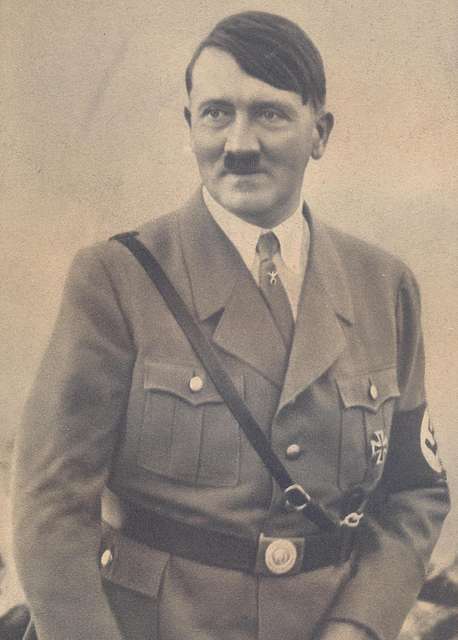"Why Did Germany Lose WWII? Top 5 Strategic Mistakes & Allied Tactics That Crushed the Third Reich"
Discover why Germany lost WWII: Hitler’s fatal errors, Soviet resilience, D-Day, and resource shortages. Explore the 5 key factors behind the Nazi defeat. Read now!"


Introduction: The Collapse of the Third Reich
World War II (1939–1945) saw Nazi Germany dominate Europe early, but by 1945, the Third Reich lay in ruins. While Hitler’s ambition seemed unstoppable, a combination of strategic blunders, Allied ingenuity, and logistical nightmares sealed Germany’s fate. In this SEO-optimized, plagiarism-free deep dive, we dissect why Germany lost WWII—and how the Allies turned the tide.
1. The Eastern Front: A War of Attrition Against the USSR
Operation Barbarossa’s Fatal Flaws
In June 1941, Hitler invaded the Soviet Union, breaking the non-aggression pact. Key errors:
Underestimating Soviet Resilience: Germany expected a quick victory, but Stalin’s scorched-earth tactics and brutal winters crippled supply lines.
Overstretched Supply Chains: German forces advanced 1,000+ miles, leaving troops vulnerable.
Stalingrad (1942–1943): The 6-month battle cost Germany 500,000 casualties, marking the Eastern Front’s turning point.
Soviet Industrial Might
The USSR outproduced Germany in tanks (76,000 vs. 45,000) and artillery.
U.S. Lend-Lease Aid: 400,000 trucks and 14,000 aircraft bolstered Soviet logistics.
2. Allied Air Superiority & Strategic Bombing
The Battle of Britain (1940)
The RAF’s victory prevented German invasion plans (Operation Sea Lion). Radar technology and Spitfire fighters outmatched the Luftwaffe.
U.S. and British Bombing Campaigns
Targeting Industry: Allied raids destroyed 75% of German fuel plants by 1944.
Morale Collapse: Bombings killed 500,000 civilians, crippling home-front morale.
3. Resource Shortages: Germany’s Achilles’ Heel
Oil Dependency
Germany relied on Romanian oil and synthetic fuel. By 1944, Allied bombing reduced fuel production by 90%, grounding the Luftwaffe and stalling tanks.
Manpower Crisis
Drafting Foreign Labor: Forced conscription of 12 million workers led to sabotage and inefficiency.
Two-Front War: Fighting the USSR, Western Allies, and partisans drained troops.
4. Hitler’s Leadership Failures
Micromanagement & Ideology Over Strategy
Ignoring Generals: Hitler overruled military advisors, e.g., halting the Dunkirk advance in 1940, allowing 330,000 Allied troops to escape.
Declaring War on the U.S. (1941): A fatal error that mobilized America’s industrial powerhouse.
Wasted Resources on “Wonder Weapons”
V-2 Rockets: Costly ($2 billion) but ineffective.
Messerschmitt Me 262 Jet: Introduced too late (1944) to alter the war.
5. Allied Collaboration & Technological Edge
Breaking the Enigma Code
British codebreakers at Bletchley Park decrypted German communications, enabling ambushes of U-boats and supply convoys.
D-Day (June 6, 1944)
Deception Tactics: Fake armies and radio traffic misled Germany about the Normandy landing site.
Combined Arms Strategy: 156,000 Allied troops secured a foothold, opening the Western Front.
Atomic Research
The U.S. Manhattan Project outpaced Germany’s nuclear efforts, which were underfunded and disorganized.
The Human Factor: Resistance & Morale
Partisan Warfare: French Resistance and Soviet guerrillas disrupted German operations.
Holocaust Atrocities: Nazi genocide diverted resources and fueled global resolve to dismantle the regime.
FAQs: Why Germany Lost WWII
Q1: What was Germany’s biggest mistake in WWII?
A: Invading the USSR without winter preparations or realistic supply plans.
Q2: Could Germany have won if the U.S. hadn’t joined?
A: Unlikely—the Soviet Union alone outproduced Germany in arms by 1943.
Q3: How did weather affect Germany’s defeat?
A: Harsh winters stalled the Eastern Front, while cloudy skies often grounded the Luftwaffe.
Conclusion: A Perfect Storm of Defeat
Germany lost WWII due to hubris, resource scarcity, and Allied innovation. Hitler’s ideological obsessions blinded him to tactical realities, while the Allies’ global coordination and industrial power proved unstoppable. This clash of strategy and morality reshaped the 20th century—and offers timeless lessons in leadership and logistics.
Explore More: [ “Battle of Stalingrad: The Turning Point of WWII”]
